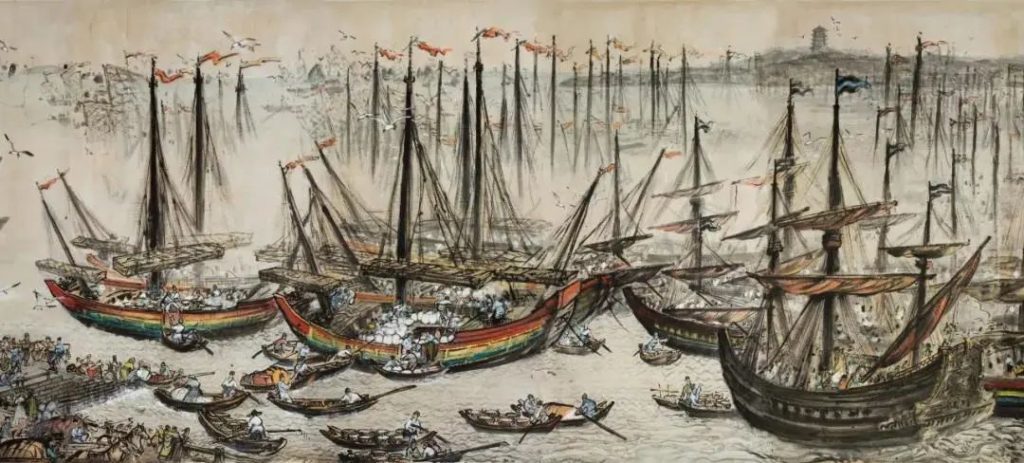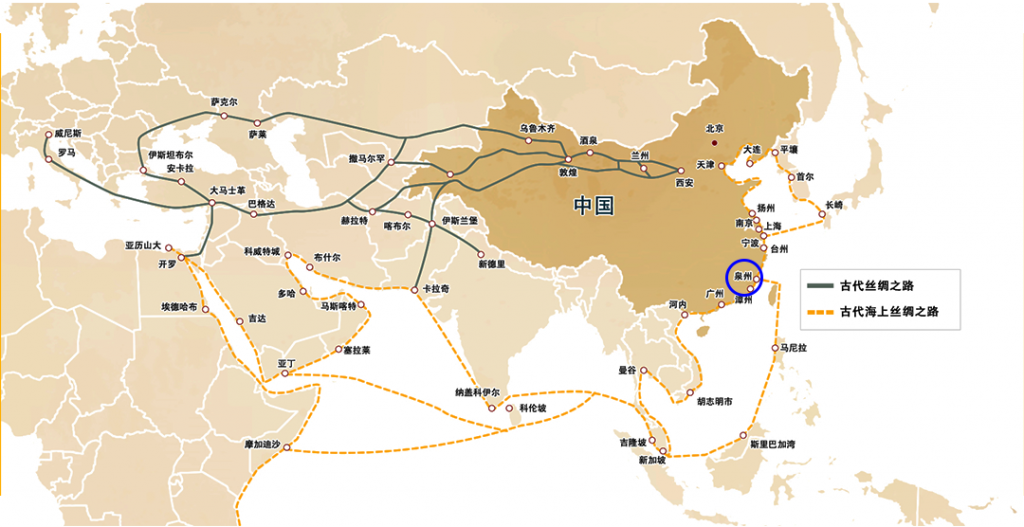Arnold Joseph Toynbee, a great historian, once said, “ If I had a chance to decide where to live, that would be the Song Dynasty, China.” Why was Song so attractive to him? The answer is quite straightforward. Almost all historians then agreed that the Song Dynasty experienced a very prosperous and free society. Zaitun, now called Quanzhou, at that time, was regarded as the largest hub in the East, so it worked as an ideal indicator of the wealth and freedom peaked in that period.

Arnold Joseph Toynbee
Zaitun, situated in the southeastern province of Fujian, China, serves as a crucial link between China and the ocean, giving it a distinct geographical advantage that enables it to partake in overseas commercial and cultural exchanges. The region is enveloped by a subtropical monsoon climate, which is characterized by a prevailing southeast monsoon from May to August, facilitating the import of goods, and a dominant northwest monsoon from December to February, which aids in the export of commodities. Other advantages of this region include its large harbor size, deep draft, waveless sea surface, and ample accommodation facilities, which all help to ease the burden of loading and unloading cargo in this bustling port.

古泉州示意图
Every year, the number of ships docking in the Zaitun harbor amounted to thousands, outnumbering those of other famous cities, say, Venice, Italy; London, Great Britain; Amsterdam, Netherlands. Merchants brought their indigenous commodities into Zaitun to trade with Chinese and then purchased such goods as tea, china, and so on. Meanwhile, specialties, including spices, ivories, and jewels, gained tremendous popularity among those eager to come to China to make profits. Combined, all those trade businesses contributed to the vigor of life in this land. For thousands of years, China had been an agriculture-intense country, so businesses had been on the margins.
Driven by the eye-catching profits made from businesses, the Chinese government decided to veer toward the new practice—advocating people to engage in overseas trade. In the Southern Song Dynasty, a great number of aristocracies and their dependents poured into Zaitun, cooperating with the foreign merchants to develop international business. Hoping to regulate the foreign trade, the local government set up Shi-Po-Si (now called customs) to supervise ships reaching the harbor and collect, to some extent, customs fees. According to the writings, the booming trades in Zaitun helped the Chinese administration acquire a large amount of revenue, exceeding all traditional gains made in other fields.
However, problems followed hard on the heels of making more profits. The Chinese government faced a severe problem—the paucity of cash flow. Every year thousands of businesspeople came to China to trade, and copper coin worked as the only medium to pay, almost draining the currency. To prevent this situation from deteriorating, the Song Dynasty issued a decree to forbid further coin trade and mandated mints to produce more coins. During recent years, considerable amounts of coins and china were found in a shipwreck salvaged in the South China Sea, and scientists speculated that this ship probably sank because it encountered strong winds after leaving Zaitun for overseas trade.

古海上丝绸之路线路图
Not only was immensely developed the economy, but the culture, especially religion, has been dramatically transformed. The Chinese government allotted some special areas in Zaitun to accommodate the increasing number of foreign merchants since by doing this, the administration wished to attract more investment. Historical documents revealed that there was once a wording—Ten Tribes, Nine Continents, which communicates there were various types of foreigners resided in the areas, most of whom were the so-called world businessmen Arabs. All those merchants had their unique religious faiths: some believed in Christianity; some Judaism; some Islam; some Zoroastrianism. To reflect their religions, they set up churches to practice the faith.
Diverse religions enriched cultures in local Zaitun, and on the streets, it was a common scene that different people lived in harmony. People enjoyed the harmonious life there so much that some merchants chose to settle in Zaitun and marry local people. As the international businesses became intensified, and people, including both Chinese and foreign traders, kept flooding into, the population in Zaitun burgeoned, reaching over one million; however, cities such as London, Paris, and Baghdad had a population at most ten thousand. Now when we travel in Zaitun, it is not rare to see various churches, among which the most-well preserved is one of the Mosque Churches, and you are also prone to meet faces different from Chinese, who are the descendants of former international business people. In recent years, the United Nations granted Zaitun the name of Religious Museum, and also listed it among the World Heritage Sites.